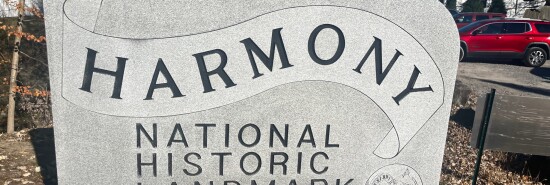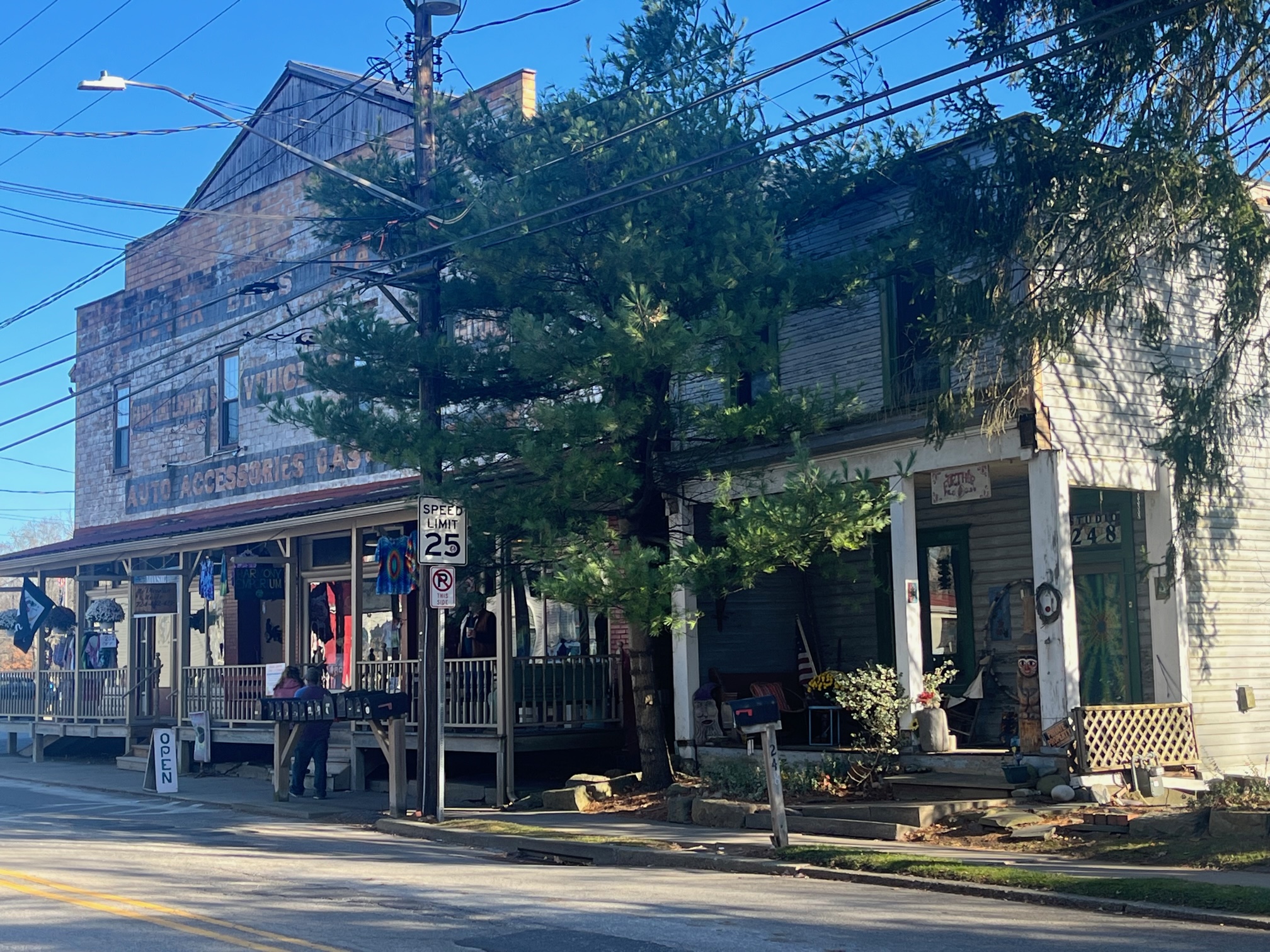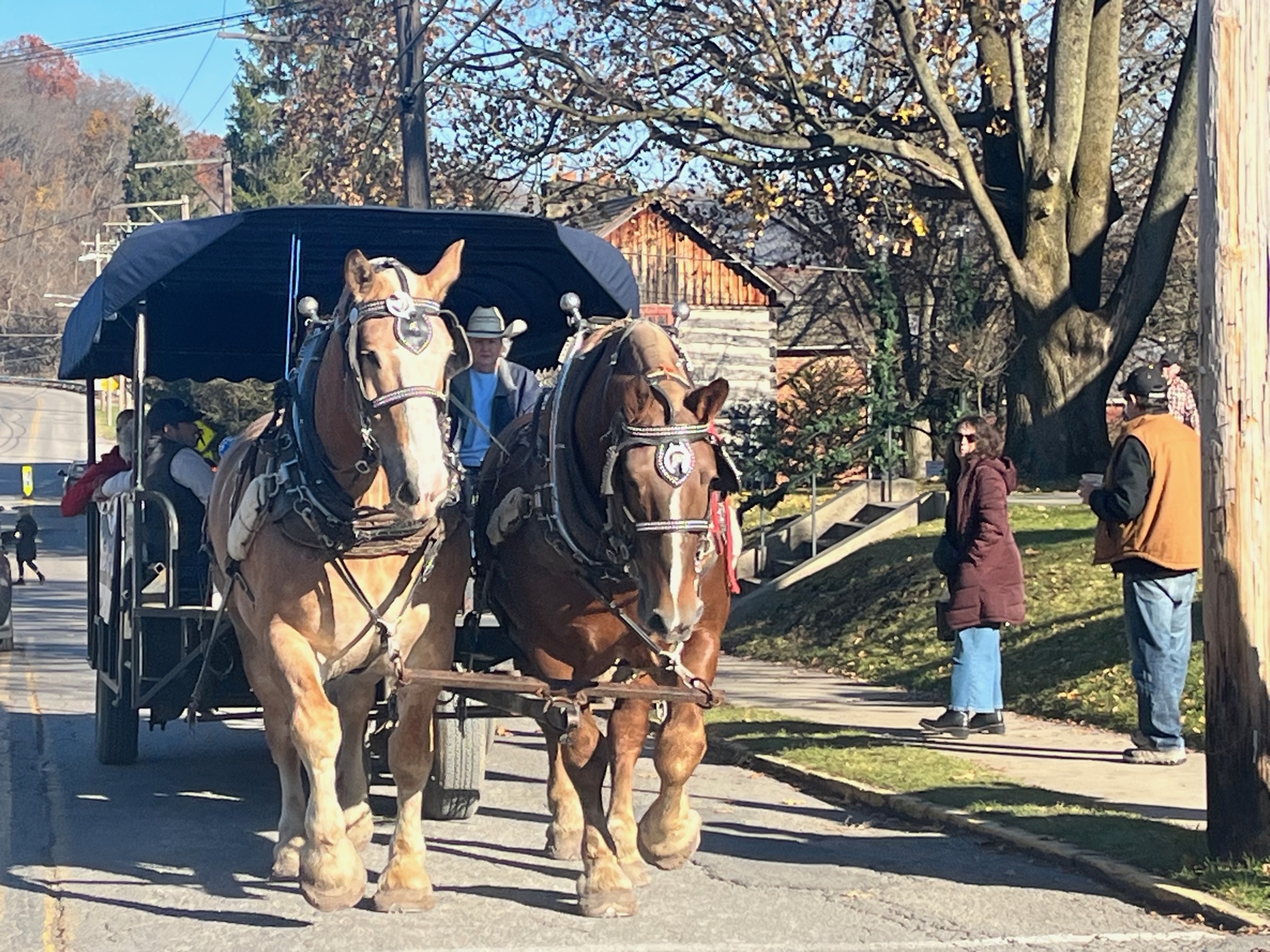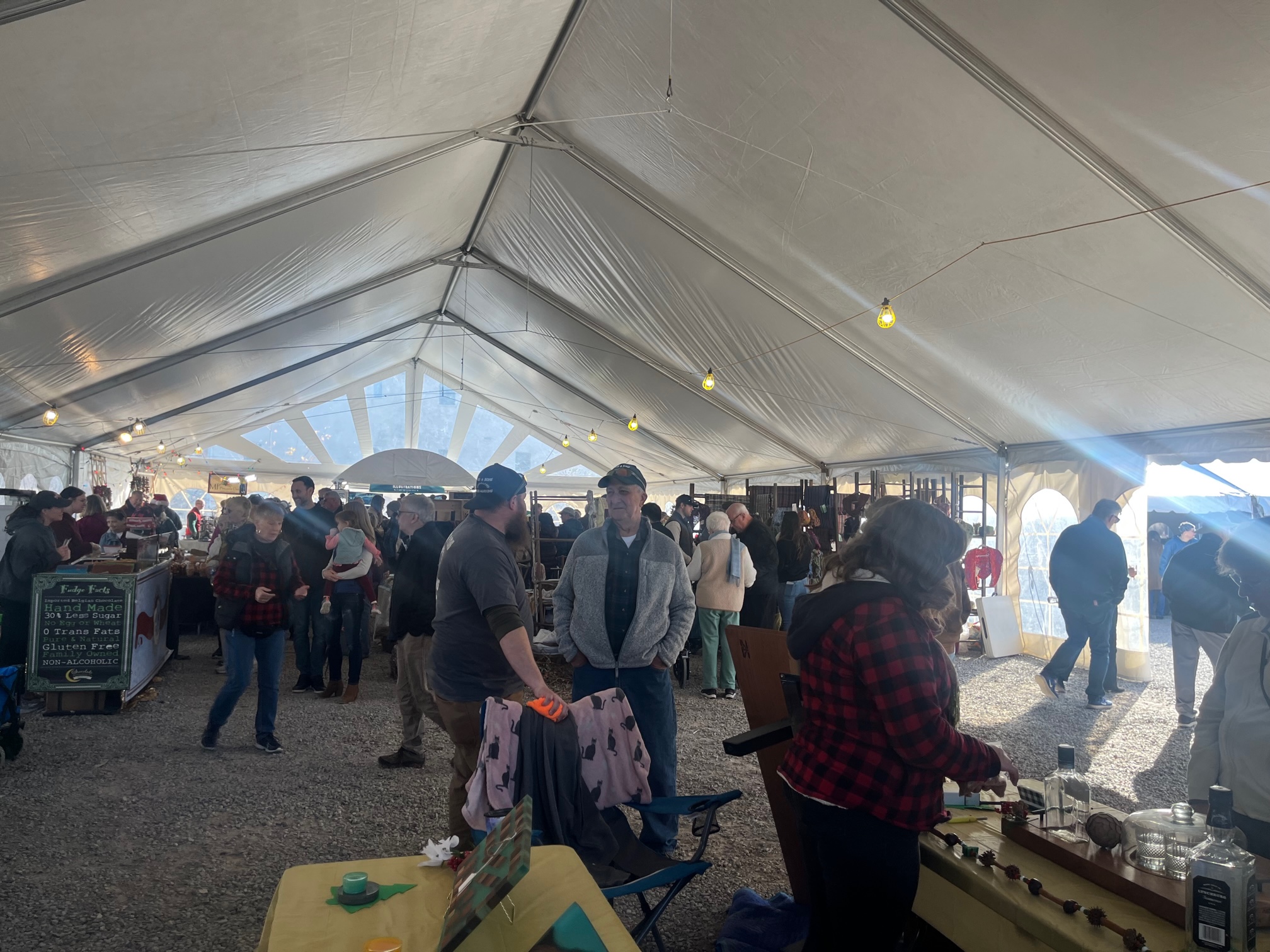
Why more people are searching for meaningful, affordable holidays
Salena Zito
Video Embed
HARMONY, Pennsylvania — It was hard not to get caught up in the Christmas season this past weekend if you were anywhere near this tiny little Butler County borough whose recorded history began in 1753 when a then 21-year-old George Washington spent the night here on his trip to French Creek, only to be shot at on his way back to Virginia by a French-allied native.
Harmony, Pennsylvania, at first was called Sancock by the Erie, Seneca, Delaware, Shawnee, and Iroquois tribes who traded near there. After Washington’s visit, it was referred to by the handful of locals who lived in and around there as “Murdering Town.”

LOSING ITS SPARK: THREE REASONS EV PRODUCERS ARE STRUGGLING TO SELL CUSTOMERS ON THE FUTURE
Fifty years later, it became known as Harmony when a town was founded there in 1804 by Lutheran separatists from southwestern Germany in search of religious freedom. They formed the so-called Harmony Society. The Harmonists were skilled artisans and businessmen, especially in the production of woolens and linens. The town bustled and thrived there, and many of the log cabin businesses, such as Weaver’s Cabin, that they built are still standing and in original use.
The Harmonists left 10 years later and settled in Native American territory, but the town kept the name when Mennonites from Bucks and Berks counties moved in. Their Meetinghouse, the first Mennonite meetinghouse west of the Allegheny Mountains, built in 1825, still stands in its original condition today and is used for small weddings and intimate concerts.
The Harmonists came back to the region and settled 20 miles away in Beaver County in 1825. They died out by 1905 largely because of their strict adherence to celibacy.

Whether it was the Harmonists, the Mennonites or the people who live here today, nearly everyone who has settled here and called Harmony home has valued the dedication to craft, entrepreneurial spirit, individualism, and preservation of those who came before them.
There isn’t one Starbucks in this charming little town, but there is the Wunderbar Coffee and Crepes located in the historic opera hall, where everything from crepes to soups is homemade, the fresh roasted coffee is divine, and no one is staging a walkout midmorning in an effort to demand unionization.
What you did find on your way out was a glass jar with a thin red bow wrapped around the neck and a sign under it reading:
“Please consider donating to BRUNTON DAIRY, our local family run dairy farm that was affected by a devastating fire recently. If you’ve enjoyed our drinks, you’ve enjoyed their milk. We are heartbroken by their loss. Let’s help these amazing people rebuild!
The jar was stuffed with $5, $10, and $20 bills and gave you a peak into how supportive locals are of each other.

There is not a Target here either. There is, however, an ancient General Store just a block from the coffee shop called the Harmony Emporium. Nothing there is made in China, and everything is nearly unique. There is also the legendary Neff Haus Ice Cream shop located in an original Harmonist building, a brewery, several gift shops, a bakery, and the extraordinary Harmony Inn, which dates back to 1856. It creates the most incredible stick-to-your-ribs farm fresh food and serves as the community gathering place for both locals and visitors.
No matter where you go or where you shop, the gifts are almost all done by local artisans and are both unique and affordable. Both locals and visitors from across the tri-state area said affordability and being American-made were very important in their purchases this year for Christmas.
There is also the local lumber yard, hardware store, local bank, dentist, law and doctor offices. In short, there’s everything you need, 30 miles from the big city of Pittsburgh, and it still retains its sense of place in a way larger cities and suburbs have lost in recent decades.
And you if think small towns lack cultural attractions like a museum, Harmony has a wonderful one located inside what was once the Harmonists’ warehouse. Its displays contain fascinating artifacts from every era of early settlement here.
The museum also offers a map to walk the town to visit the other historic sites such as the Mennonite Meetinghouse, the cemetery, and the Harmonist National Bank — all of which are perfectly preserved and still in use.
It used to be for many people that the trip to the big city was the ultimate way to ring in the Christmas season, looking at the displays in the large department store windows, going to see Santa, and getting that sense that everyone around you was all part of something bigger than themselves and you were lucky to be with them.
Last Sunday, people parked for miles around to be able to walk around this small town and recapture what they are having a hard time finding in the bigger cities today. Pittsburgh’s kickoff to the Christmas Season is called the Highmark Light Up Night, named after a healthcare company, with a website decorated in blue and gold.
Here at the German Christmas market last week, there were more than 50 artisans adding to the ability to shop local for the event. There was also a choir, a towering Christmas tree, and Santa and Mrs. Claus sitting and talking to the children and some adults. And there was a man with a Vietnam veteran black leather vest with his wife who literally sat on Santa’s lap, to everyone’s delight.
The moral of this story isn’t that a small town is better than a big city but that there is a movement out there among people that hasn’t quite made it up to the headline news: People are struggling with their purchases this year and are also struggling to find things made here and not China.
CLICK HERE TO READ MORE FROM THE WASHINGTON EXAMINER
They have grown exhausted but also confused by the endless protests against Israel as well as the rising crime and stepping over feces and homeless people in cities, and they are unsure where either event could break out when they are in the city — and all of this is changing both their shopping habits and eating habits as this year wears down.
People go where they feel comfortable, where they feel a sense of place. Our large-city elected officials are not prepared for how many people are about to reject their choices in governing in the coming future. The trip to Harmony showed the ability for the impact to be big — it is right in front of them. They are just not looking.
